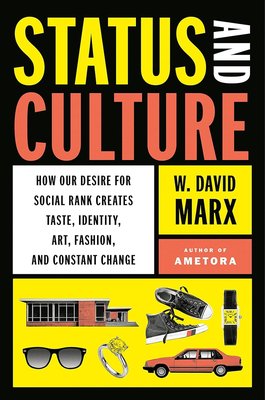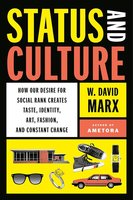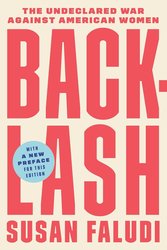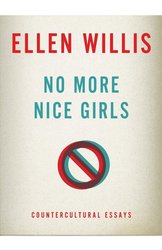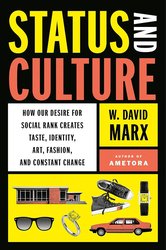"Subtly altered how I see the world." —Michelle Goldberg, New York Times “[ Status and Culture ] consistently posits theories I'd never previously considered that instantly feel obvious.” —Chuck Klosterman, author of The Nineties “Why are you the way that you are? Status and Culture explains nearly everything about the things you choose to be—and how the society we live in takes shape in the process.” —B.J. Novak, writer and actor Solving the long-standing mysteries of culture—from the origin of our tastes and identities, to the perpetual cycles of fashions and fads—through a careful exploration of the fundamental human desire for status All humans share a need to secure their social standing, and this universal motivation structures our behavior, forms our tastes, determines how we live, and ultimately shapes who we are. We can use status, then, to explain why some things become “cool,” how stylistic innovations arise, and why there are constant changes in clothing, music, food, sports, slang, travel, hairstyles, and even dog breeds. In Status and Culture , W. David Marx weaves together the wisdom from history, psychology, sociology, anthropology, economics, philosophy, linguistics, semiotics, cultural theory, literary theory, art history, media studies, and neuroscience to demonstrate exactly how individual status seeking creates our cultural ecosystem. Marx examines three fundamental questions: Why do individuals cluster around arbitrary behaviors and take deep meaning from them? How do distinct styles, conventions, and sensibilities emerge? Why do we change behaviors over time and why do some behaviors stick around? The answers then provide new perspectives for understanding the seeming “weightlessness” of internet culture. Status and Culture is a book that will appeal to business people, students, creators, and anyone who has ever wondered why things become popular, why their own preferences change over time, and how identity plays out in contemporary society. Readers of this book will walk away with deep and lasting knowledge of the often secret rules of how culture really works.
